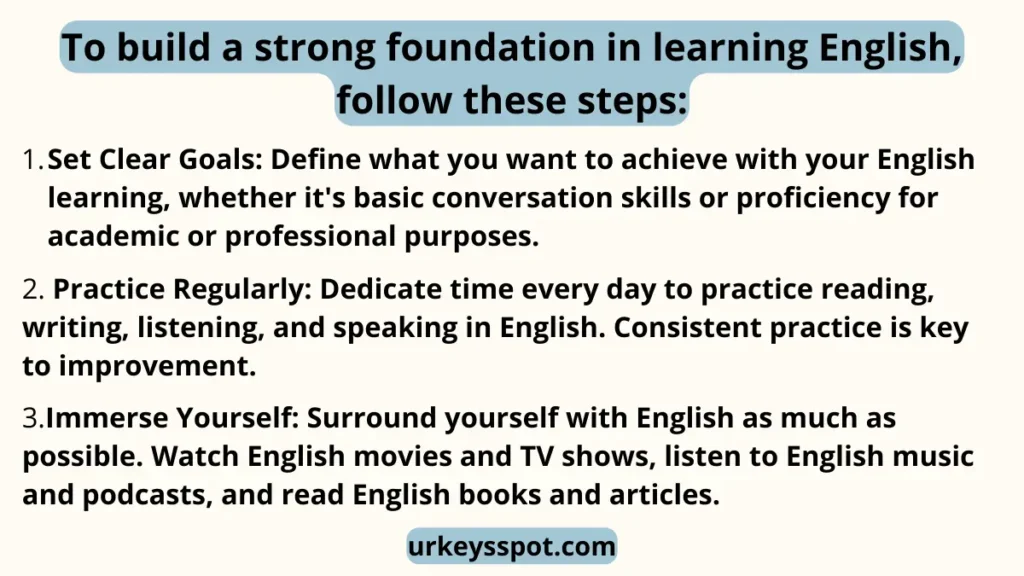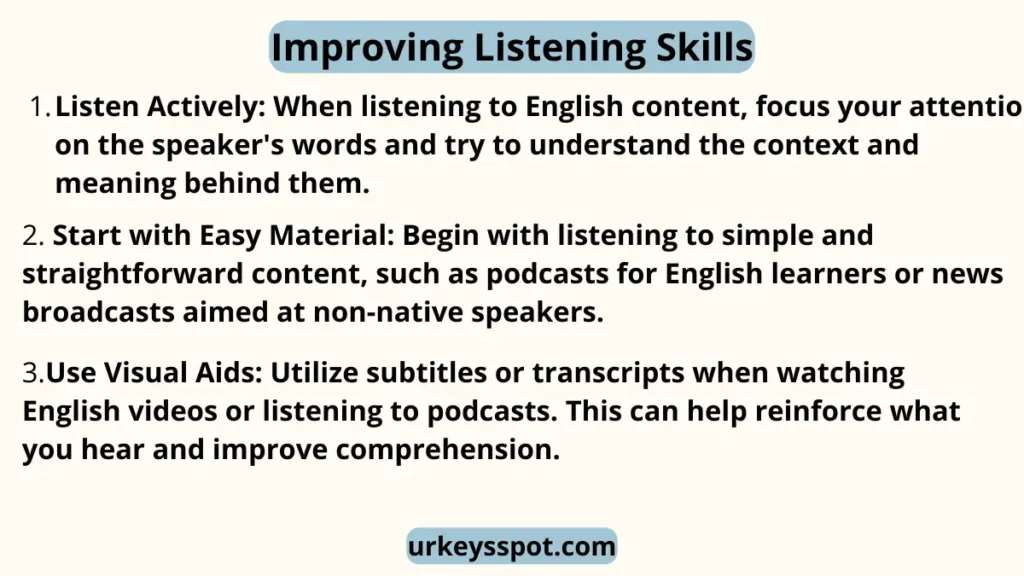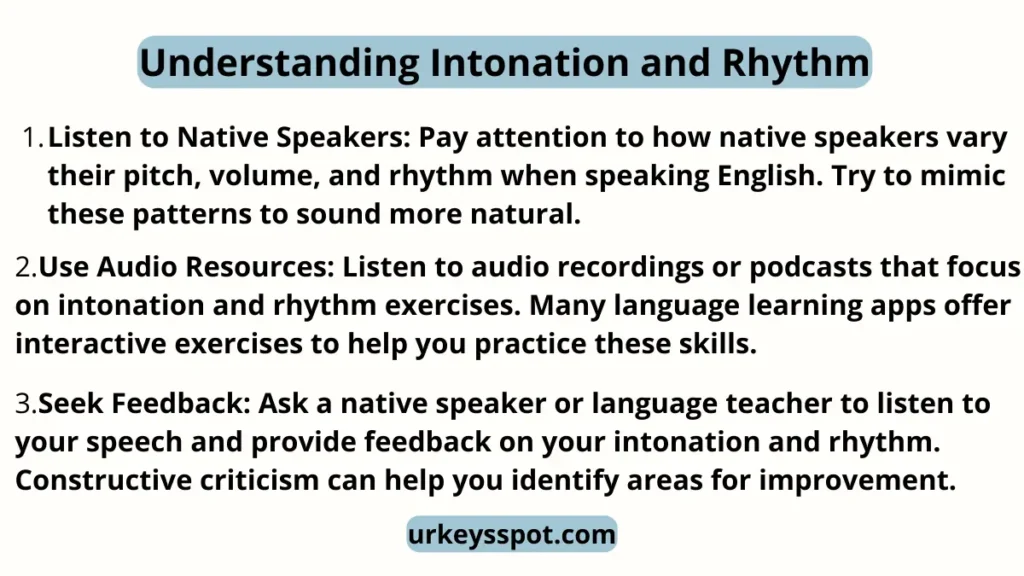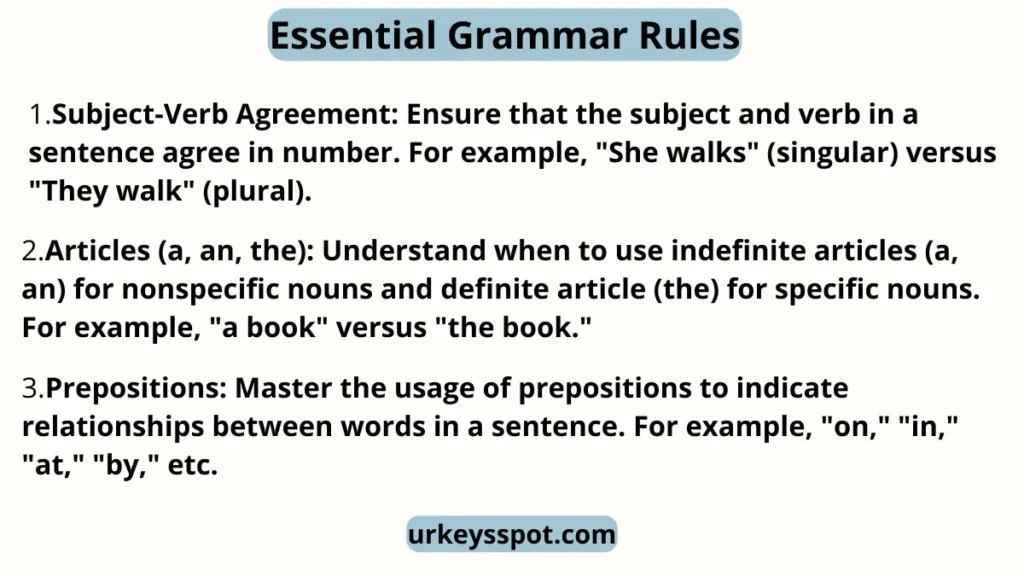Learning to speak English like a native speaker might seem like a lofty goal, but with the right strategies and dedication, it’s absolutely achievable. This guide will walk you through practical steps to enhance your fluency, covering everything from setting realistic goals to mastering pronunciation, expanding your vocabulary, and immersing yourself in the language. Whether you’re just starting or looking to refine your skills, these tips will help you sound more natural and confident in your English conversations.
Introduction
Introduction to the Guide
Learning English can open doors to new opportunities, from advancing your career to connecting with people worldwide. But, let’s face it, speaking English like a native can be challenging. This guide aims to demystify the process, offering practical advice and actionable tips to help you on your journey. We’ll explore everything from setting goals to mastering the nuances of the language. Ready to get started? Let’s dive in!
Building a Strong Foundation

Setting Goals
Setting clear, achievable goals is the cornerstone of any successful learning endeavor. When you have specific targets, you can track your progress and stay motivated. Start by defining what fluency means to you. Do you want to hold casual conversations, or are you aiming for professional proficiency? Once you know your destination, you can map out the steps to get there.
- Define Your Goals: Write down what you want to achieve. It could be as simple as having a 10-minute conversation with a native speaker or as ambitious as giving a presentation in English.
- Break Down Your Goals: Divide your main goal into smaller, manageable tasks. For example, if your goal is to improve your vocabulary, start by learning five new words a day.
- Set a Timeline: Having a deadline can keep you on track. Decide when you want to achieve each milestone and hold yourself accountable.
Motivation and Mindset
Maintaining motivation can be tough, especially when progress seems slow. However, a positive mindset and staying motivated are crucial for long-term success.
- Stay Positive: Celebrate your small victories along the way. Each new word you learn or every successful conversation is a step closer to your goal.
- Overcome Challenges: Understand that making mistakes is part of learning. Instead of getting discouraged, view errors as opportunities to improve.
- Find Inspiration: Surround yourself with English. Listen to music, watch movies, and engage with content that excites you. This constant exposure will keep you motivated and make learning more enjoyable.
Remember, learning a language is a marathon, not a sprint. Stay patient, keep your goals in sight, and enjoy the journey. Next, we’ll delve into developing your listening and speaking skills, essential components of fluency.
Developing Listening and Speaking Skills
Improving Listening Skills

To speak English like a native, you first need to listen like a native. Improving your listening skills is a fundamental step in this journey. When you listen carefully to native speakers, you pick up on the subtle nuances of pronunciation, intonation, and rhythm that make their speech sound natural.
- Immerse Yourself in English: Surround yourself with English as much as possible. Watch English TV shows, listen to podcasts, and engage with English music. This constant exposure helps you become familiar with different accents and speaking styles.
- Active Listening: Don’t just passively consume content; engage with it. Try to understand the context, note new words, and repeat phrases out loud. This technique, known as shadowing, involves mimicking the speaker as closely as possible, which helps improve your pronunciation and intonation.
- Interactive Tools: Use apps and websites designed to improve listening skills. Platforms like FluentU offer real-world videos, such as movie clips and news segments, paired with interactive captions to enhance comprehension and retention (FluentU).
Mimicking Native Speakers
Mimicking native speakers is one of the most effective ways to learn how to speak English naturally. This method, often called shadowing, involves listening to native speakers and repeating what they say as closely as possible.
- Shadowing: Choose a piece of audio or video featuring native speakers. Listen to a segment, then try to repeat it exactly as you heard it. Pay attention to pronunciation, intonation, and rhythm. This practice helps you develop a more natural speaking style.
- Imitation Games: Pretend you’re an actor preparing for a role. Try to copy the speech patterns and body language of native speakers. This can make the learning process more enjoyable and effective (BoldVoice).
- Consistent Practice: Make this a regular part of your learning routine. The more you practice mimicking native speakers, the more natural your own speech will become.
Incorporating these techniques into your daily routine will significantly improve your listening and speaking skills. Remember, the key is consistent and active practice. In the next section, we’ll dive into mastering pronunciation, a critical component of sounding like a native speaker.
Stay tuned for Part 4, where we’ll explore pronunciation tips and techniques to help you sound more like a native English speaker.
Mastering Pronunciation
Pronunciation Practice
Pronunciation is a key aspect of speaking English like a native. Accurate pronunciation helps you be understood clearly and boosts your confidence when speaking.
- Listen and Repeat: This classic technique involves listening to native speakers and repeating what they say. Focus on mimicking their accent, intonation, and stress patterns. Utilize resources like BBC Learning English to find quality listening materials.
- Phonemic Awareness: Understanding phonemes, the distinct units of sound in a language, is crucial. Use a phonemic chart to familiarize yourself with the sounds of English. Websites like the British Council offer interactive phonemic charts that can be very helpful.
- Practice with Tongue Twisters: Tongue twisters are a fun way to improve your pronunciation and diction. Try saying phrases like “She sells seashells by the seashore” to practice difficult sounds and improve your clarity.
- Record Yourself: Recording your speech and listening to it can help identify areas for improvement. Compare your pronunciation with native speakers and make adjustments accordingly.
Understanding Intonation and Rhythm

Intonation and rhythm are often what distinguish native speakers from learners. These elements give English its natural flow and expressiveness.
- Intonation Patterns: English uses rising and falling intonation patterns to convey different meanings and emotions. Practice these patterns by listening to native speakers and repeating their speech.
- Stress and Rhythm: English is a stress-timed language, meaning that the rhythm is determined by the stressed syllables in a sentence. Practice placing the correct stress on syllables and words. For example, in the word “photograph,” the stress is on the first syllable: PHOTOgraph.
- Songs and Rhymes: Listening to and singing English songs can help you get a feel for the natural rhythm and intonation. Karaoke apps and websites can be particularly useful for this practice (FluentU).
By mastering pronunciation, intonation, and rhythm, you can significantly improve your English speaking skills, making you sound more like a native speaker.
Stay tuned for Part 5, where we’ll discuss how to expand your vocabulary and use idioms effectively to enhance your conversational English.
Expanding Vocabulary and Using Idioms
Building a Rich Vocabulary
A broad vocabulary is essential for fluent English speaking. It allows you to express yourself clearly and understand others better.
- Learn Phrases, Not Just Words: Instead of memorizing individual words, learn them in context. This helps you understand how words are used in real-life situations. For example, learn phrases like “take it easy” or “on the other hand” rather than just the words “take” and “hand.”
- Read Extensively: Reading books, articles, and blogs in English exposes you to new vocabulary. Try to choose materials that interest you, so the learning process remains enjoyable. BBC Learning English offers great reading resources tailored for learners at different levels.
- Use Flashcards: Flashcards are an effective tool for vocabulary building. Apps like Anki or Quizlet let you create digital flashcards and review them regularly, which helps with retention.
- Keep a Vocabulary Journal: Write down new words and phrases you come across. Include their meanings, example sentences, and any synonyms or antonyms. Reviewing this journal regularly will reinforce your learning.
Using Idioms and Slang
Native speakers often use idioms and slang, which can make their speech sound more natural and engaging.
- Understand Common Idioms: Idioms are phrases that don’t make literal sense but have understood meanings. For example, “kick the bucket” means to die. Learning these expressions helps you understand native speakers and adds color to your speech. Websites like FluentU offer extensive lists of common idioms and their meanings (FluentU).
- Incorporate Slang Appropriately: Slang is informal language often used in casual conversations. For example, “cool” can mean good or excellent. While it’s useful to know slang, be mindful of the context in which you use it. Some slang might not be appropriate in formal situations.
- Practice with Native Content: Watching movies, TV shows, or even YouTube videos made by native speakers can expose you to idiomatic expressions and slang. Try to mimic how these phrases are used in context. Services like FluentU are excellent for this, as they provide real-world videos with interactive captions (FluentU) (BoldVoice).
Expanding your vocabulary and using idioms and slang correctly can greatly enhance your conversational English, making you sound more like a native speaker.
Stay tuned for Part 6, where we’ll delve into mastering grammar and the use of contractions to further polish your English speaking skills.
Grammar and Contractions
Essential Grammar Rules

Understanding and applying correct grammar is essential for speaking English fluently. While mastering grammar might seem daunting, focusing on key rules can make a significant difference.
- Subject-Verb Agreement: Ensure the subject and verb in a sentence agree in number (singular or plural). For example, “She walks” versus “They walk.”
- Tenses: Use the appropriate tense to indicate the timing of an action. For example, “I eat” (present), “I ate” (past), and “I will eat” (future). Practice using these tenses in different contexts to become comfortable with them.
- Prepositions: These small words (in, on, at, by, etc.) can change the meaning of sentences. Understanding their correct usage is crucial. For instance, “I’m at the park” versus “I’m in the park.”
- Articles: Articles (a, an, the) define the noun they precede. Remember the basic rules: use “a” before consonant sounds, “an” before vowel sounds, and “the” when referring to something specific.
For a deeper dive into grammar rules and practice exercises, BBC Learning English offers excellent resources that can help you refine your understanding and application of English grammar.
Using Contractions
Contractions make your speech sound more natural and fluid, much like a native speaker. They’re common in everyday conversation and can help you sound less formal.
- Common Contractions: Familiarize yourself with basic contractions such as:
- I am → I’m
- You are → You’re
- He is → He’s
- They are → They’re
- Did not → Didn’t
- Can not → Can’t
- Practice with Contractions: Incorporate contractions into your speech and writing. For example, instead of saying “I do not know,” say “I don’t know.”
- Understand Context: Use contractions in informal settings like casual conversations or personal letters. In formal writing, it’s usually best to avoid them.
By mastering these grammar rules and effectively using contractions, you can speak more confidently and naturally. Proper grammar usage not only helps you be understood but also boosts your credibility and fluency.
Stay tuned for Part 7, where we’ll discuss practice techniques and immersive activities to further enhance your English speaking skills.
Practice and Immersion
Speaking Practice
Regular speaking practice is vital for achieving fluency in English. Engaging in conversations helps you apply what you’ve learned and gain confidence.
- Language Exchange Partners: Find language exchange partners who are native speakers. Websites like Tandem and HelloTalk connect you with people who can help you practice speaking English in exchange for learning your native language.
- Join Conversation Groups: Look for local or online conversation groups where you can practice speaking English. Platforms like Meetup often have language learning groups where you can meet and practice with others.
- Use Language Learning Apps: Apps like Duolingo and Babbel provide interactive speaking exercises that can help you practice your pronunciation and speaking skills in a structured way (BoldVoice) (FluentU).
- Daily Practice: Make it a habit to speak English every day, even if it’s just for a few minutes. Talk to yourself, describe your day, or discuss your thoughts on a topic out loud.
Immersive Activities
Immersion is one of the most effective ways to learn a language. Surrounding yourself with English will help you think in the language and improve your fluency.
- Watch English Media: Watching English movies, TV shows, and videos helps you learn colloquial expressions and improves your listening skills. Choose shows with subtitles if you need them initially, and gradually try to watch without subtitles.
- Listen to English Music and Podcasts: Music and podcasts are great ways to immerse yourself in English. They expose you to various accents, vocabulary, and idiomatic expressions. Try to follow along with the lyrics or transcripts to enhance your understanding.
- Read in English: Reading books, articles, and blogs in English helps you expand your vocabulary and understand different writing styles. Choose materials that interest you to make reading enjoyable.
- Engage in Cultural Activities: Participating in activities related to English-speaking cultures can enhance your learning experience. This could include attending events, joining clubs, or even cooking recipes from English-speaking countries (but without mentioning specific brands or alcohol).
By integrating these immersive activities into your routine, you can make English a part of your daily life, speeding up your learning process and making it more enjoyable.
Stay tuned for Part 8, where we’ll cover advanced tips for fluency, including thinking in English and keeping up with English news and culture.
Advanced Tips for Fluency
Thinking in English
One of the most powerful ways to achieve fluency is to start thinking in English. When you think in English, you reduce the time spent translating in your head and begin to speak more naturally and spontaneously.
- Inner Monologue: Practice having your inner monologue in English. Narrate your actions and thoughts throughout the day. For example, think “I need to buy groceries” instead of saying it in your native language and then translating it.
- Journaling: Keep a daily journal where you write down your thoughts, experiences, and plans in English. This not only helps with thinking in English but also improves your writing skills.
- Mental Exercises: When you encounter new vocabulary or phrases, make a mental note of them and try to use them in sentences throughout the day. This reinforces your learning and helps you remember new words.
Keeping Up with English News and Culture
Staying updated with English news and culture can significantly enhance your language skills and keep you engaged with current events and trends.
- News Sources: Follow English news websites like BBC News, The Guardian, or CNN. Reading and listening to news in English improves your comprehension and introduces you to formal and informal language styles.
- Cultural Immersion: Engage with cultural content such as movies, TV shows, and books from English-speaking countries. This helps you understand cultural references and colloquial language. For example, watching popular shows on Netflix or Hulu can provide insights into everyday English usage.
- Interactive Content: Participate in online forums, social media groups, or discussion boards related to your interests. Websites like Reddit or Quora have communities where you can engage in discussions and practice your English in a more interactive and informal setting.
By thinking in English and staying immersed in English news and culture, you’ll develop a deeper understanding of the language and its nuances. This continuous exposure and practice are key to achieving fluency and speaking like a native speaker.
Stay tuned for Part 9, where we’ll answer frequently asked questions about learning English and provide practical tips based on common queries.
FAQs
1. How to learn English like a native speaker?
Learning English like a native speaker involves immersion, consistent practice, and exposure to authentic language usage. Engage with English media such as movies, TV shows, and music, practice speaking with native speakers, and mimic their pronunciation and intonation. Additionally, focus on learning idiomatic expressions and colloquialisms to sound more natural.
2. How to achieve native fluency in English?
Achieving native fluency in English requires dedication and persistence. Set clear goals, practice speaking and listening regularly, and immerse yourself in the language as much as possible. Pay attention to nuances in pronunciation, intonation, and cultural references. Additionally, expand your vocabulary and refine your grammar skills through reading, writing, and conversation.
3. Is it possible to speak like a native speaker?
While achieving perfect native-like fluency may be challenging, it is certainly possible to speak English at a high level that is indistinguishable from that of a native speaker to most listeners. With consistent practice, exposure to the language, and a focus on natural communication, learners can attain a high degree of fluency and proficiency.
4. How to read English like a native?
Reading English like a native involves developing strong comprehension skills and an understanding of idiomatic language and cultural references. Practice reading a variety of texts, including literature, news articles, and online forums. Pay attention to vocabulary usage, sentence structure, and context clues to enhance your understanding and fluency in reading English.
Conclusion
In conclusion, achieving fluency in English and speaking like a native speaker is a challenging yet achievable goal. By following the comprehensive guide outlined in this article, which covers setting goals, improving listening and speaking skills, mastering pronunciation and grammar, expanding vocabulary, and immersing yourself in the language and culture, you can make significant progress on your language learning journey.
Remember to stay motivated, practice consistently, and embrace opportunities for growth. Whether you’re a beginner or an advanced learner, there are always new techniques and resources to explore. With dedication and perseverance, you can unlock the doors to endless opportunities that come with speaking English fluently.
So, keep practicing, stay curious, and don’t be afraid to make mistakes along the way. With time and effort, you’ll find yourself speaking English with confidence and fluency, just like a native speaker. Good luck on your language learning adventure!


Muy bien gracias!
Srta. Veronikaucyasuchas gracias
Hi I am new student can you help me english learning
Srta. Veronika muchas gracias.
Sta. Verónica, muchas gracias. Saludos
Muchas gracias Veronika por la información
Muchas gracias Vero.👍✋
Verónica muchas gracias ,un fuerte abrazo a la distancia ,que pases una excelente navidad y prospero año nuevo en compañía de tus seres queridos.
Gracias Verito, una linda y bendecida navidad, abrazos
Its really godd
Hi I am Salman from Pakistan I need some friends to practice in English it will be good for all. Because practice makes a man perfect
Ok. My name is Jairo and my number is +50583749287. I wait for you message. Thanks
Hi i am MAHBOOBULLAH KHAWARY from afghanistan i need friend for practice english
I really appreciate you for your support